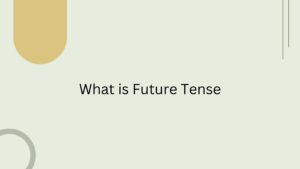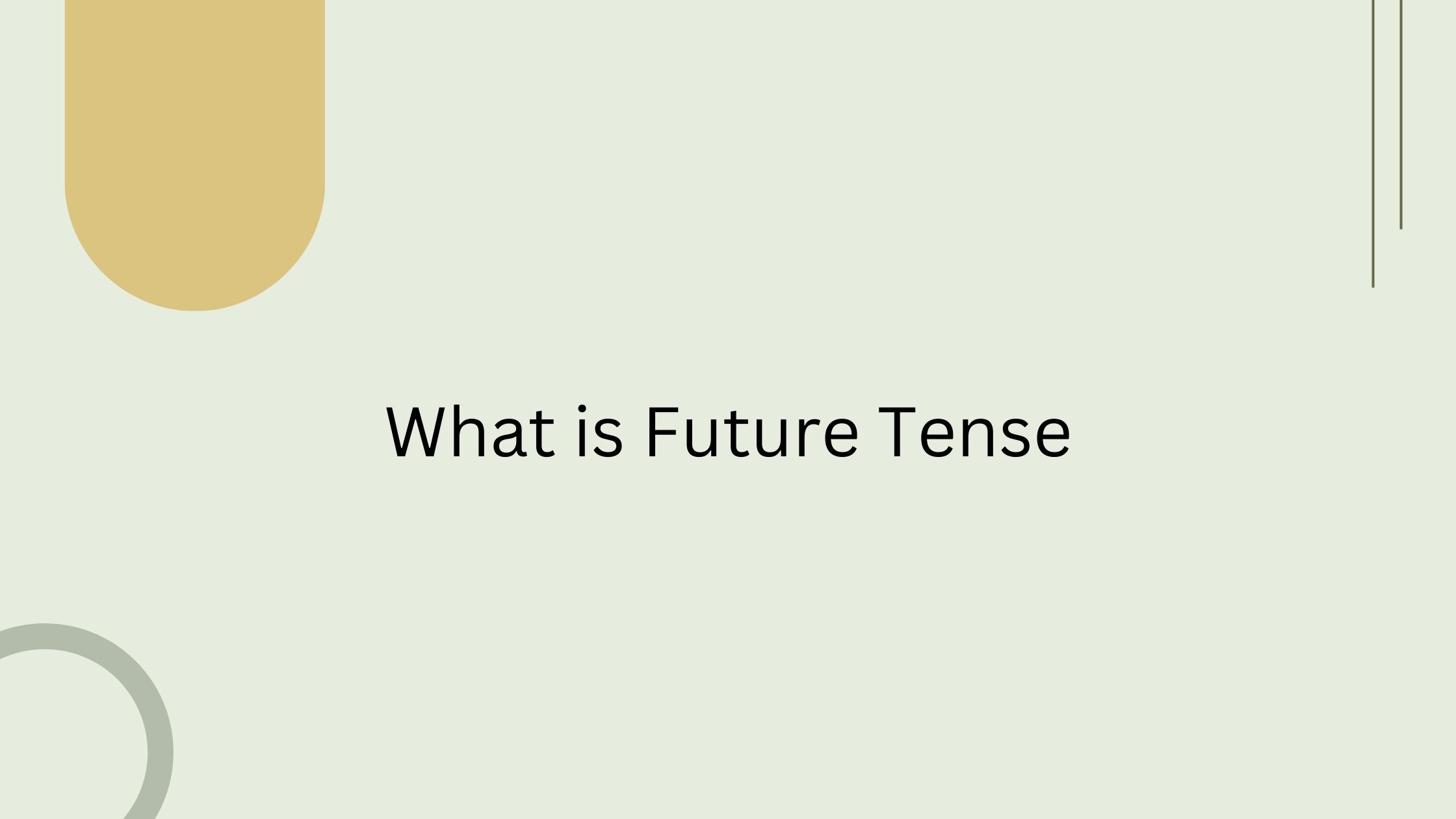The future tense is used to describe actions, events, or states that will occur after the present moment. It allows speakers and writers to convey their thoughts, intentions, plans, or predictions about what will happen at a later time. Although English does not have a distinct verb form for the future tense (like it does for past and present), we use auxiliary verbs and verb phrases to express future actions.
The future tense in English is commonly divided into four main forms: future simple, future continuous, future perfect, and future perfect continuous. Each form expresses a different aspect of future time, helping to convey a wide range of meanings about the future.

1. Future Simple
The future simple tense is used to express actions or events that will happen at a later time. It is often used for decisions made at the moment of speaking, future predictions, promises, or general statements about the future.
Formation:
The future simple is formed using “will” or “shall” followed by the base form of the main verb. “Will” is the more common choice, while “shall” is sometimes used in more formal or traditional contexts, especially with “I” and “we.”
- I will go to the store tomorrow.
- She will help you with your project.
- They shall return in the evening.
Uses of Future Simple:
- Predictions: “It will rain tomorrow.”
- Spontaneous decisions: “I will order pizza for dinner.”
- Promises or offers: “I will help you with your homework.”
- Scheduled events: “The meeting will start at 9 AM.”
2. Future Continuous
The future continuous tense describes actions that will be happening at a specific moment in the future. It emphasizes the ongoing nature of the action or event, often indicating that the action will occur over a period of time.
Formation:
The future continuous is formed using “will be” followed by the present participle of the main verb (-ing form).
- I will be studying at 8 PM tonight.
- They will be flying to New York this time tomorrow.
Uses of Future Continuous:
- Ongoing actions at a specific future time: “This time next week, I will be traveling to Japan.”
- Planned future actions: “We will be meeting with the new client on Monday.”
- Polite inquiries about future plans: “Will you be using the car this evening?”
3. Future Perfect
The future perfect tense is used to describe actions that will have been completed by a certain point in the future. It provides a sense of completion before a future time or event.
Formation:
The future perfect is formed using “will have” followed by the past participle of the main verb.
- I will have finished the project by Friday.
- She will have graduated by the time we start the next semester.
Uses of Future Perfect:
- Completed actions before a specified future time: “By 2025, we will have built the new school.”
- Predictions about completed future actions: “By the time you arrive, I will have cooked dinner.”
4. Future Perfect Continuous
The future perfect continuous tense is used to describe actions that will be ongoing for a certain duration before a specified future time. It emphasizes the length of time an action has been in progress.
Formation:
The future perfect continuous is formed using “will have been” followed by the present participle of the main verb (-ing form).
- I will have been working here for five years next month.
- They will have been studying for three hours by the time the exam starts.
Uses of Future Perfect Continuous:
- Duration of actions leading up to a future point: “By December, she will have been living in New York for ten years.”
- Emphasizing ongoing actions in the future: “By the end of this year, I will have been teaching for 20 years.”
5. Common Mistakes with Future Tense
Using the future tense correctly can be tricky, especially when deciding between different forms. Here are some common mistakes:
- Confusing future simple with future continuous: Use future continuous to emphasize ongoing actions at a specific time, not just actions that will happen.
- Forgetting the difference between future perfect and future perfect continuous: Future perfect focuses on the completion of an action, while future perfect continuous emphasizes the duration of the action leading up to a future time.
6. Conclusion
The future tense is a crucial aspect of English grammar, allowing us to talk about upcoming events, plans, predictions, and intentions. By mastering the four forms—future simple, future continuous, future perfect, and future perfect continuous—speakers and writers can express a wide range of meanings about the future with precision. Understanding these different forms helps convey not only what will happen but also how long an action will last or when it will be completed, making communication clearer and more effective.
